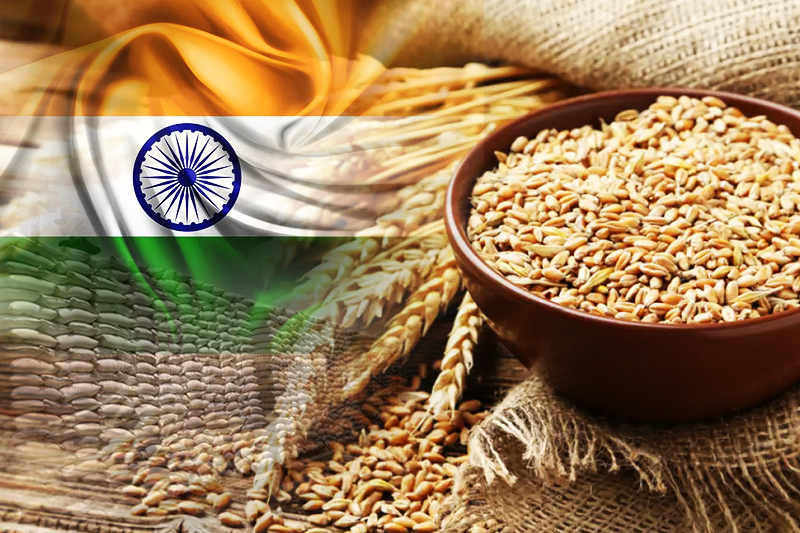India may extend wheat export ban to preserve local supplies – govt sources

India is considering extending a ban on wheat exports as the world’s second-biggest producer seeks to replenish state reserves and bring down domestic prices, government sources said.
The current ban was scheduled to be reviewed in April and top government officials from food, farm and trade ministries are likely to make a decision on an extension by the end of March, or early April, government and industry sources said, adding they don’t expect wheat exports to resume until mid-2024.
A jump in exports following Russia’s invasion of Ukraine has pushed up local wheat prices, prompting India to ban exports in May, but that failed to stop domestic prices rising, as a sudden spike in temperatures hit last year’s output.
Although the new season looks promising, slightly warmer than normal patterns in March, when farmers start harvesting, could still shrivel the crop.
“The idea is to ensure that the government’s own wheat procurement goes up this year,” said a government source who didn’t wish to be named, in line with official rules. “We do not want a repeat of last year.”
Higher food prices makes the government vulnerable to criticism from opposition parties ahead of state elections, which are due later this year.
Last year, state purchases of wheat fell by 53% to 18.8 million tonnes, as open market prices rose above the rate at which the government buys the staple from domestic farmers.
The government buys rice and wheat from farmers at state-set prices to run the world’s biggest food welfare programme.
“The priority is to build stocks and bring down prices,” said a second government source. “The focus is to buy as much as possible from farmers from the current season’s crop and build the wheat stockpile.”
Wheat stocks at government warehouses dropped 47.9% to 17.2 million tonnes on Jan. 1, the lowest for the month in six years.
In 2023, India is expected to harvest a record 112 million tonnes of wheat.
India’s local wheat demand is estimated at around 105 million tonnes, and traders estimate last year’s production dropped to about 95 million tonnes, resulting in record prices.
Domestic wheat prices hit an all-time high of 32,500 rupees ($393.53) a tonne in January, higher than 21,250 rupees a tonne – the price at which the government will buy the grain from local farmers this year.
Read also
Join with the EARLY RATE – 22 International Conference BLACK SEA GRAIN.EUROP...
Brazil sugar output decreased by 23% — Unica
Algeria imposes a complete ban on durum wheat imports in 2025
Weather in Brazil and Argentina remains favorable for the future harvest of soybea...
Ukrainian flour exports are 35% behind last year’s volumes
Write to us
Our manager will contact you soon



